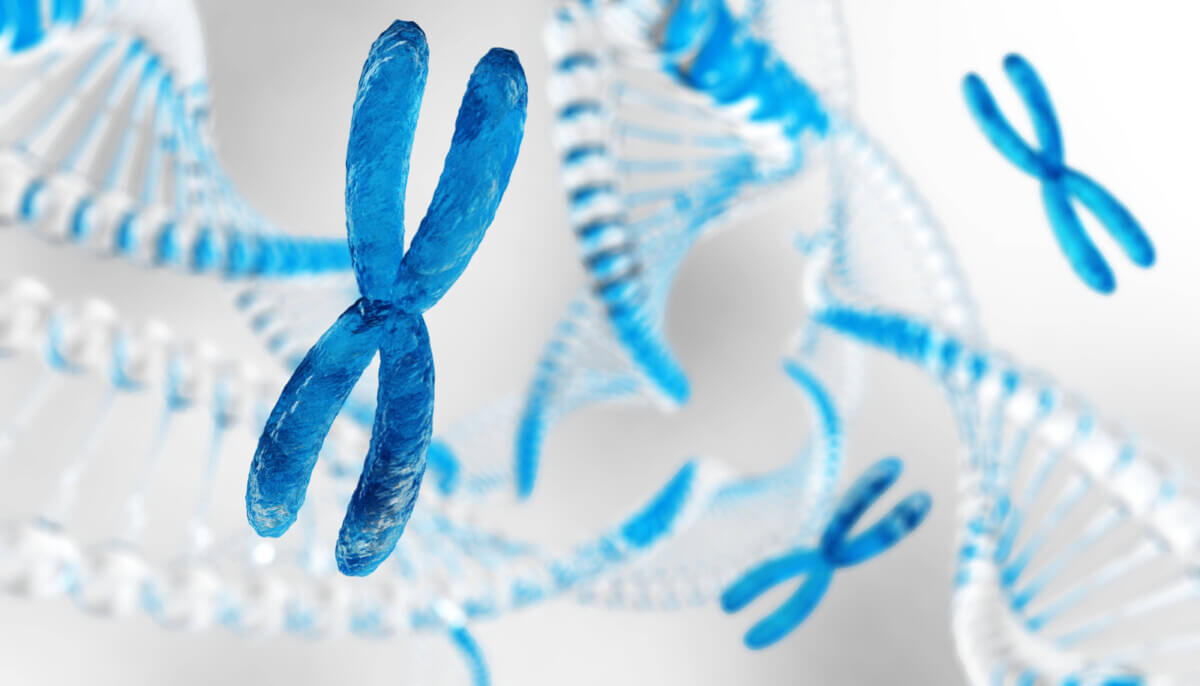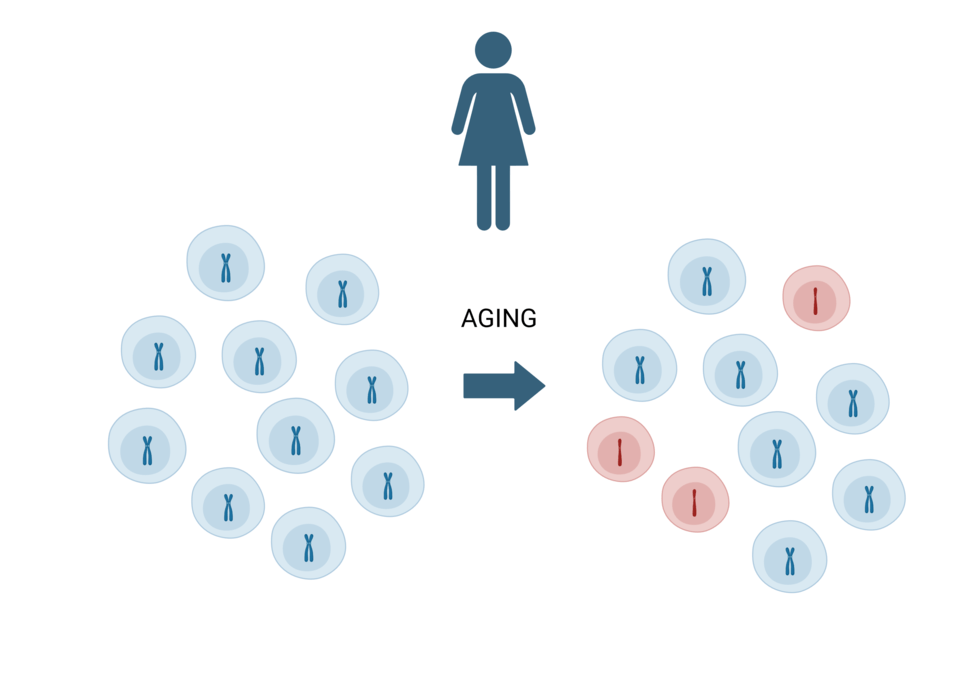
(Credit: ustas7777777/Shutterstock)
ROCKVILLE, Md. — A new study uncovers genetic factors that may help explain why some women experience a phenomenon called mosaic loss of the X chromosome (mLOX) as they age. With mLOX, some of a woman's blood cells randomly lose one of their two X chromosomes over time. Concerningly, scientists believe this genetic oddity may lead to the development of several disease, including cancer.
Researchers with the National Institutes of Health found that certain inherited gene variants make some women more susceptible to developing mLOX in the first place. Other genetic variations they identified seem to give a selective growth advantage to the blood cells that retain one X chromosome over the other after mLOX occurs.
Importantly, the study published in the journal Nature confirmed that women with mLOX have an elevated risk of developing blood cancers like leukemia and increased susceptibility to infections like pneumonia. This underscores the potential health implications of this chromosomal abnormality.

Paper Summary
Methodology
To uncover the genetic underpinnings of mLOX, the researchers conducted a massive analysis of nearly 900,000 women's blood samples from eight different biobanks around the world. About 12% of these women showed signs of mLOX in their blood cells.
Results
By comparing the DNA of women with and without mLOX, the team pinpointed 56 common gene variants associated with developing the condition. Many of these genes are known to influence processes like abnormal cell division and cancer susceptibility. The researchers also found that rare mutations in a gene called FBXO10 could double a woman's risk of mLOX. This gene likely plays an important role in the cellular processes that lead to randomly losing an X chromosome.
Perhaps most interestingly, the team identified genetic variants that seem to be preferentially retained on the X chromosome that “wins out” after mLOX occurs. By looking at which variants ended up on the preserved X, they could predict which X would be retained with over 80% accuracy for women in the highest risk group.
Key Takeaways
This means certain X chromosomes, due to their genetic makeup, may have a competitive advantage that allows them to multiply more than cells with the other X after mLOX. This could help explain why mLOX increases cancer risk - if the preserved X has mutations that promote unchecked cell growth.
The researchers emphasize that more work is necessary on how mLOX interacts with other genetic factors and age-related changes to fully understand the potential disease implications. However, this pioneering study has cracked the genetic code behind this mysterious chromosomal loss.











Apparently, you can wear it out!
Here's something the study won't tell you.
There are no sufferers of this condition that aren't “vaccinated”.
And I mean childhood “vaccines”, which do no good for humanity what so ever.
“Vaccines” cause the vast majority of our health problems.
Period.
You're a deluded and dangerously misinformed useful idiot. The antivax cult has already facilitated the return of previously-eradicated diseases like measles and mumps, and it's only a matter of time before rubella and polio make their own inauspicious returns in unvaccinated children raised by people like yourself; it's not only tantamount to child abuse, it IS child abuse. Vaccines are absolutely vital, and widely regarded as some of the greatest achievements humans have ever made in the field of medicine.
This condition has nothing to do with vaccines, as anyone with even passing familiarity with medicine or genetics could tell you. These are rare age-related mutations in the genomes of people with two X chromosomes — there is no vaccine, mRNA or otherwise, that could even possibly have this dramatic effect on gene expression, and there is NO DATA that suggests that they might. Your uneducated opinion (not a statement even remotely resembling fact) is as stupid and devoid of truth as it is dangerous. For all of our sakes, keep your idiocy to yourself.
Is this the pink hair crowd? Most look like walrus s.
Perhaps it stems from brain and personality disorders - creating drama, chronic complaining, pathological lying, whining, temper tantrums, laziness, infidelity, kleptomania, inefficiency in the workplace, thriving on victimhood, being constantly “offended”, and sexual frustration.
You are what you eat, or drink, we all are subject to some extent, to the modifications and
chemicals added to our food and water....Over the long term, the results can not be totally predicted....We have met the Enemy, and it is WE.....